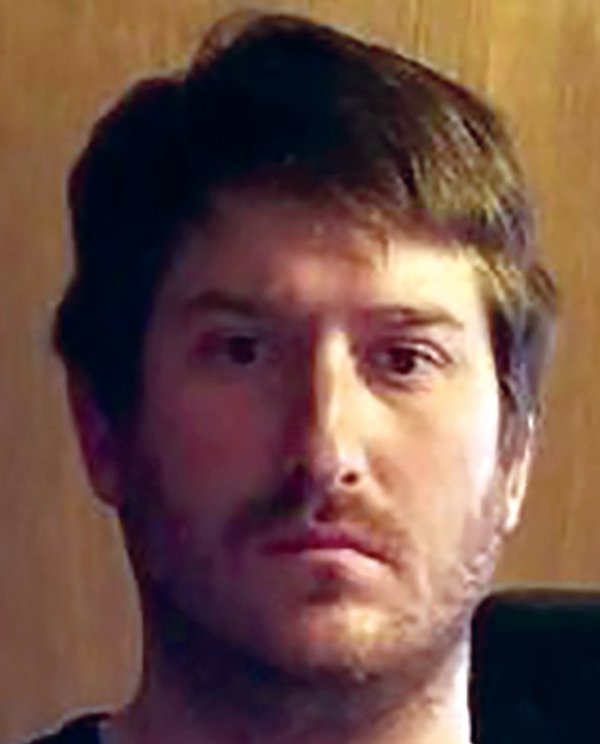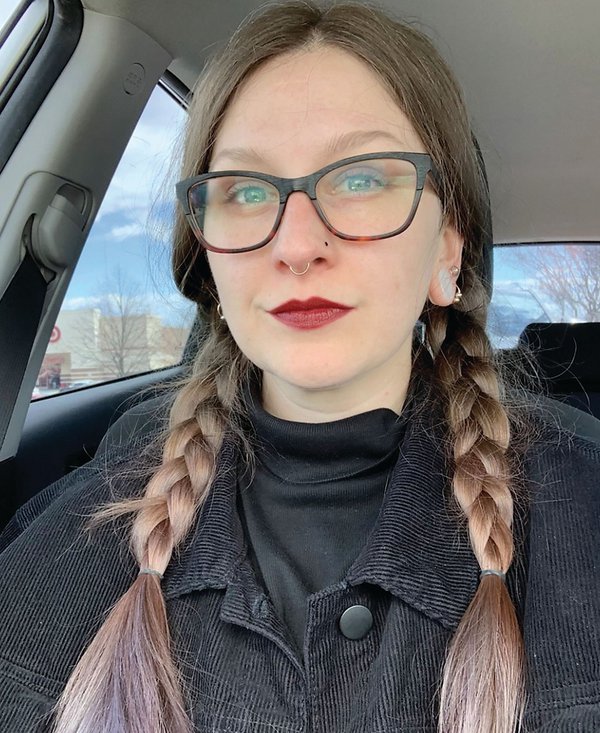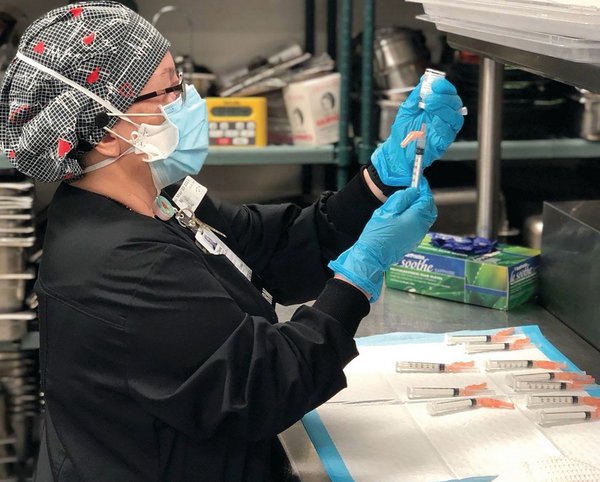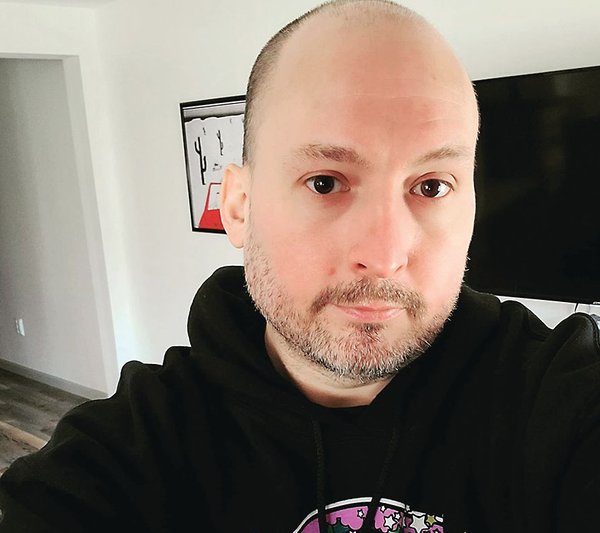The Big Quit
A national labor phenomenon known as “The Great Resignation,” or “The Big Quit,” began to take hold in January 2021 and has since grown. Millions of workers in the United States have turned the turmoil caused by the coronavirus pandemic into opportunities to rethink their professions and reframe their lives.
The trend is especially pronounced in the accommodation and food services sector, which experienced more than 5 percent worker attrition each month from June to October of last year.
By fall 2021, the quitting mood had become something closer to a movement, with many workers leaving their jobs in a conscious rejection of stagnant wages and inadequate workplace protections during the pandemic. Online, people flooded a Reddit forum called “r/antiwork” for commiseration and solidarity; by year’s end, the page had reached 1.5 million members. In the streets, thousands of unionized workers in manufacturing, health care, and higher education went on strike last fall for fair pay and protections.
The Progressive spoke with five people who left their jobs recently. Here are their stories:

Benjamin Harder
Benjamin Harder, thirty, quit two jobs during the pandemic, the first at a warehouse, and the second stocking frozen goods at an Aldi supermarket. Although the stress of working during the pandemic took its toll, he says it was the long-standing poor working conditions that led him to leave each position. After six months of unemployment, Harder took a job in road maintenance and snow plowing, where he currently works.
Initially, in the pandemic, I was working at Nebraska Furniture Mart, assembling furniture.
At the end of 2020, when I got a fifteen-cent raise, not even a cost-of-living raise, I realized I’d been dead-ended. I was like, “Why? What am I working for?”
I found another job within the week, at an Aldi’s freezer warehouse. It was supposed to be thirty-five hours a week, but soon I’m working over sixty. [To get] a lunch break, you have to request it. Most people don’t, because it isn’t paid, and most people who take that work are desperate, I would say.
So you don’t take lunch, you’re working twelve hours a day and having only two fifteen-minute breaks. You’re in negative ten degrees, and you’re driving around a pallet truck, so there’s no socialization. In the freezer rooms, everything is just bright white, and you don’t see sunlight all day. You go in to work in the dark and you leave in the dark.
You go home, you’re cold. You wake up, you’re cold.
Once, I went to Hy-Vee after work. I got out of the car and I passed out before I made it into the store. That’s when I learned that I have to go home, shower, and wait for my temperature to normalize before I can go out and do other stuff. It could take an hour to an hour-and-a-half. I’d have a bowl of ramen or oatmeal or something hot, and spend an hour playing video games or something, in a hoodie, just retaining body heat.
At one point, I had two weeks off because of [exposure to COVID-19] and I basically realized in those two weeks how miserable I was. I realized it wasn’t worth it anymore, the toll on my body, my mental health. I started talking to my friends again for the first time in six months, and they were like, “Holy crap, man, you still exist?”

Amanda H.
Amanda H., thirty-two, quit her job at Starbucks in September 2020, disillusioned with the company’s treatment of workers. By the time of her resignation, she had worked for the chain for eleven years.
I first started making coffee in a Barnes and Noble Café, before I got hired on as a full-time barista at a Starbucks in 2011. Within the first six months, I had moved up to the shift supervisor position. I really wanted to make it my career, so I spent a lot of time pursuing the programs that Starbucks offered, like the “Coffee Master” program where you learned not only brand history, but the actual history of coffee, from its origins in Ethiopia to how coffee actually traveled throughout the world.
The best kind of day would be when, from a logistical standpoint, I could get all of my managerial work done, but also where I got to be “in the play,” which is what we called the setup on the floor, you know, interacting with people and beverages. Getting to be there when everything is moving smoothly, and the spirits are good between the team as well as the customers, was great.
But our labor coverage itself was often a struggle. There was an instance where I was the only person on the floor who could make drinks. I was making all the hot drinks, iced coffees, Frappuccinos, and I don’t think people realize how much you actually have to do behind that counter.
When you’re on the bar, not only are you responsible for making drinks, you’re responsible for talking to the customers—you know, smile at everybody, say thank you. You’re supposed to be interacting the entire time.
There was definitely a toll on my mental and physical health. I actually had a stress fracture in one of my ribs from repeated motion. And my anxiety was always really bad.
Ultimately, the pandemic shed light on a lot of issues for me, labor shortages being one of them and pay being another. As a store manager, I was salaried and felt overall I was well compensated for my position. When the pandemic hit, initially, they offered other workers in my area a $3 increase in rate of pay, but it was temporary.
[It was a shock] seeing the culture that I had so wholeheartedly believed in for about a decade being really exposed as something that was pretty words with not a lot of action, and seeing how the company truly viewed their workers and the way that they treated them was just unacceptable to me.

Chana Luria
Chana Luria, fifty-six, has worked as a travel nurse in several hospitals, vaccination centers, and clinics throughout last year. She left one assignment in November 2021 due to inadequate COVID-19 safety measures.
When I told my father I wanted to go to medical school, he said, “Women become wives and mothers, not doctors.”
My dad was in the Navy, very smart, but not highly educated. Very Old World. We’re fairly recent immigrants, and they still have that Old World thing—my first marriage was an arranged marriage.
So for me, nursing was a respectable profession, in my family’s Old World mentality, because you’re serving others, you’re helping others.
“What is worth being paid for? What is worth my time?”
In San Diego, like in any city, the communities with more money have more access to health care and the ones with the least money have the least access to care. My calling as a nurse is to pay attention and advocate for the most vulnerable patients.
At the start of COVID, I was kind of a default travel nurse because I’m a reservist [with the Medical Reserve Corps, California Health Corps, Disaster Healthcare Volunteers, Cal-Mat, and FEMA] who serves at a fire in California once every couple years. That was part of my giveback in this world. And because I was in that system, I kept getting sent out to COVID-19 assignments.
As soon as your boots hit the ground, you’re running. And literally, the catch phrase is, “If it’s bleeding, make it stop. If it’s not breathing, make it start.” And you know, if you can’t do either of those, tag them, bag them, and roll on to the next one.
The only assignment I left was one in Bakersfield, where I contracted with a private agency. I had been promised full PPE [personal protective equipment]. Then they wouldn’t even provide me with an N95 mask. They said, “That’s only for people working in the emergency department, You have to buy your own on Amazon.”
They said, “You’re working on a floor that doesn’t have COVID patients.” But I’m like, we do have COVID patients. I’m running around testing people on the floor, and they’re coming up positive. And I’m working alongside nurses and other staff members who are symptomatic and still at work. And people are only in the flat mask. We’re doing aerosol-generating procedures and we don’t have gowns, no head covers, no shoe covers.
And I was like, “You’re gonna have to find yourselves another sucker. Goodbye.” And I left.
Now I want to get my next higher degree in nursing. I’m starting school in February, trying to track toward becoming a nurse practitioner. Because as a practitioner you are a provider, and you can actually write orders for the care that people are supposed to get. And stop people from falling through the cracks.
Sylvia (not her real name) has left several jobs in retail and the nonprofit sector since March 2020. In addition to her multiple legal jobs, Sylvia is a sex worker, managing a client load that has shrunk during the pandemic. A major turning point in her work was Congress’s passage in 2018 of FOSTA/SESTA, a law that made websites liable when users post ads for sex, resulting in many such sites being shut down.
I have been doing full service sex work for four years. Sex work has sort of shifted the way that I think about work: What is labor? What is worth being paid for? What is worth my time? What is worth my safety? I’ve been kind of reckoning with those questions since before the pandemic.
When FOSTA/SESTA passed, that was when I first started having those questions about work.
“It’s hard to explain how soul-crushing it is until you’ve done it for years.”
The violence I suffered at the hands of a client was because FOSTA had literally just passed, and I was like, “Shit, I have to make money while I can.” So I honestly wasn’t being as careful about picking who I was seeing.
But then, the pandemic added a whole other layer to safety. You know, because you’re being so intimate with them, there’s no way to not contract COVID from them if they have it.
One of my retail jobs, at a beauty supply store, shifted a lot during the pandemic. Before, I was stocking things, working the register, greeting customers, helping them out, doing other stuff in the back with shipments. And then the pandemic started. And all of a sudden, we still had to do all of that, but we also had cleaning protocols. My job was wiping down surfaces, which feels a little ridiculous when it’s an airborne virus. So I left.
Then, I worked at a women’s center from February 2021 until fall of year, working the helpline. It was really depressing in that it was so apparent the ways in which our government was failing us. One guy called and he was trying to get his wife on insurance. And he was like, “This is the greatest nation in the world. Why can’t I get my wife on health insurance? Why is it this hard in God’s greatest country?”
I felt horrible while I was there because I was like, “I’m not helping people. I’m totally useless.” Being bad at your job is one thing. That’s not a good feeling. And then the other bad feeling was, “Wow, there’s really no help for these people.”
I left for my mental health.

Jonathan Lane
Jonathan Lane, forty, has worked in call centers for more than a decade. During the pandemic, he left a job that he says became too much to bear emotionally. He is currently out of work due to a back injury.
I’m from Houston, Texas. I’d never worked in a call center until twelve years ago, when I moved to Colorado, where call centers are really prominent.
At a call center, you have every single thing you can imagine coming through on the phone. You don’t know what the next call is gonna be. You might have a great call and the person’s like, “You made my day. I’ve been dealing with this problem for weeks. You fixed it.” And then the next caller, “You people suck. I hate you. You’re the worst company.”
They discourage fraternization [among employees], and I’ve had call centers where I’ve not had one single friend. It’s hard to explain how soul-crushing it is until you’ve done it for years. Every day just sucks a little bit more out of your mana, your life energy.
In January 2021, I moved to Connecticut to help a friend work on his house, and I got a remote job for an insurance company while I was there. I was the intermediary between the insurance company and people leaving the hospital who needed home health care. During this period, I hurt my back—I don’t know how exactly, but I was dealing with back pain.
So I had a situation where a woman needed chemotherapy, got out of the hospital, and I was trying to get a nurse to come give her chemo. And the physician assistant at the doctor’s office was just being super difficult. I told her several times what we needed. I didn’t know what I was doing. My back was hurting really bad. I wasn’t getting any support. I didn’t feel like I should be handling this stuff. I’ve got a high school diploma, why am I the intermediary between someone getting life-saving medications or not? It’s too much pressure.
I’m back in Colorado now, staying with an ex-girlfriend, and I have a GoFundMe set up.
When I was a little kid, I always wanted to be an astronaut, or a marine biologist. I either wanted to explore space or explore under the ocean. And now that I’m forty years old, the only thing I want to be now is just food secure. I just want to have a roof over my head and not be a burden on every single person in my life.
I just feel really trapped by the American financial, capitalistic machine, whatever you want to call it. I’ve started to realize pretty much everything I’ve been taught my entire life is a lie. If you work hard and play by the rules, that does not necessarily guarantee a positive outcome.
Alice Herman
Alice Herman is a freelance writer based in Madison, Wisconsin.

